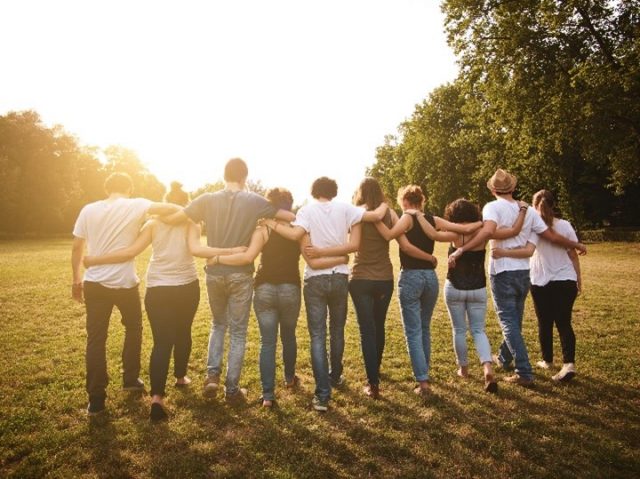When most people hear the term ‘Tribalism’ they tend to think in negative terms: unsophisticated, primitive, sometimes even worse. The current thinking is that we don’t need ethnicity, religion, or whatever bound primitives together to form a community. Technology has instead given us the tools to bring us all together in a worldwide village.
It’s true that technology has connected us all in a way previously unimaginable. At the same time, it has greatly weakened the nature of the ties that once bound us. The average number of close friends that people have has declined by two thirds and the number of people reporting no real friends at all has quadrupled. This growing estrangement and isolation have resulted in significant increases in negative mental health statistics with one fifth of Americans experiencing mental illness and a dramatic rise in teenage depression, teenagers being the group most affected by technology.
The need for strong personal ties is grounded in evolutionary history. Early homo sapiens were hunter/gatherers, living in small bands of 75 to 150. As such they were totally dependent on each other for survival. Interdependence was the norm. One had to work toward the good of the tribe or no one survived. Later, as agriculture was introduced and as economic surpluses expanded, people were able to make more individual decisions and were less dependent on the group. Now, with the introduction of advanced technology, it is not unusual for someone to go through their entire day interacting only with strangers.
Yet, the experience of our ancient forebears continues to summon us. Numerous studies indicate that we need deep interdependent ties with those with whom we share common values and goals. It is in these kinds of environments that people thrive. It is one reason why religious groups, particularly minority religious groups, enjoy high levels of mental health and wellbeing. You could say that tribalism is the natural human condition rather than something to be disdained.
But modern society emphasizes production and consumption at the cost of wellbeing. ‘‘In effect humans have dragged a body with a long hominid history into an overfed, malnourished, sedentary, sunlight-deficient, sleep-deprived, competitive, inequitable, and socially isolating environment with dire consequences.’’
If humans are going to thrive, to experience life in fuller ways, we must find new ways to reconnect, ways that deepen our dependence on others, allow us multiple sources of support, and more opportunities to directly contribute to others. The idea that independence is an unalloyed virtue or the “rugged individual” must give way to a more nuanced understanding of who we are as humans and how we got this way. In doing so we will come to realize why we need tribes.






